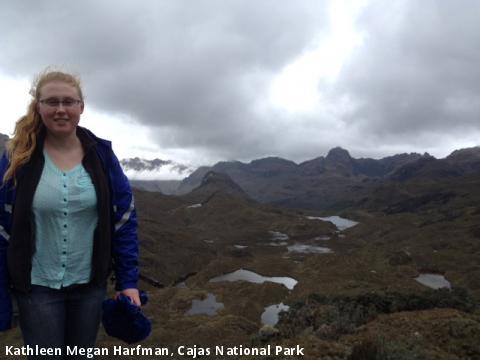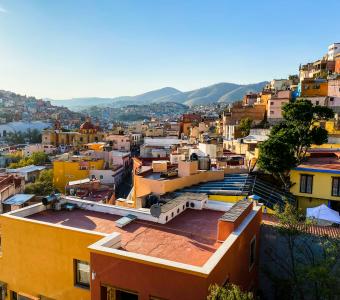
By Kathleen Megan Harfman, College of New Caledonia, winner of the 2017 Stories from Abroad Scholarship.
I have arrived in Ecuador despite a bit of a marathon getting here! We got delayed on one of the flights and missed a connector as a result, so we were stranded in the New York airport for 24hrs. That was a bit of an adventure, but we eventually made it! Our first big excursion in Ecuador was to visit an organic shrimp farm. The CEO of the company toured us around and showed us how shrimp are raised, harvested, and how the farm is operated. It was an excellent learning experience and afterward they fed us a 4-course feast of fresh shrimp! It was delicious!
Later on, we visited a mangrove ecosystem. Mangrove trees grow along riversides in the brackish waters of rivers entering the sea in some tropical areas. They are incredibly important to the health of the river and surrounding area as they filter the water and provide bank stability, among other purposes. Shrimp farming is threatening these ecosystem's health because the mangroves have been cut down to build shrimp ponds. Remaining mangroves in Ecuador are now protected, but the damage still remains from previous vast deforestation. It was interesting to see this issue from both the environmental and shrimp production viewpoint.
We also visited Isla de la Plata in Machalilla National Park to learn about birds and plants of the area. What an incredible ecosystem. Right now, the island is lush and green, as the rainy season is just ending. Soon it will be dry and brown because the plants loose their leaves to survive the drought of they dry season, much like deciduous trees in Canada loose their leaves in preparation for winter. However, plants on the island can survive in this state without water for years!
After some time on the coastal region of Ecuador, we travelled up into the high elevations of the Andes Mountains to the city of Cuenca. At about 4000m elevation, it is much cooler here and the environment is totally different. I love the area and it almost feels like another country. Here, we visited Cajas National Park to learn about high elevation ecology. Our guide in Cajas, Diego, was very knowledgeable and taught us about traditional native plant uses, animal species, ecology, and human impact on the area. I wish we had more time here because there is so much to learn and see! Next, we head for the jungle!







0 Comments
Leave a Comment